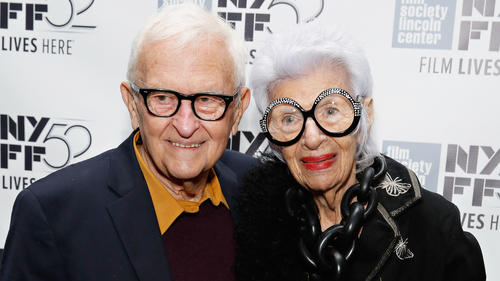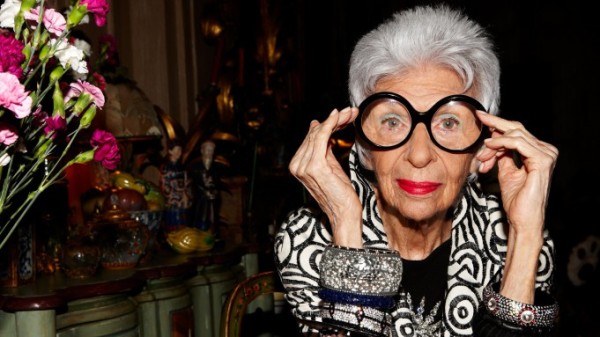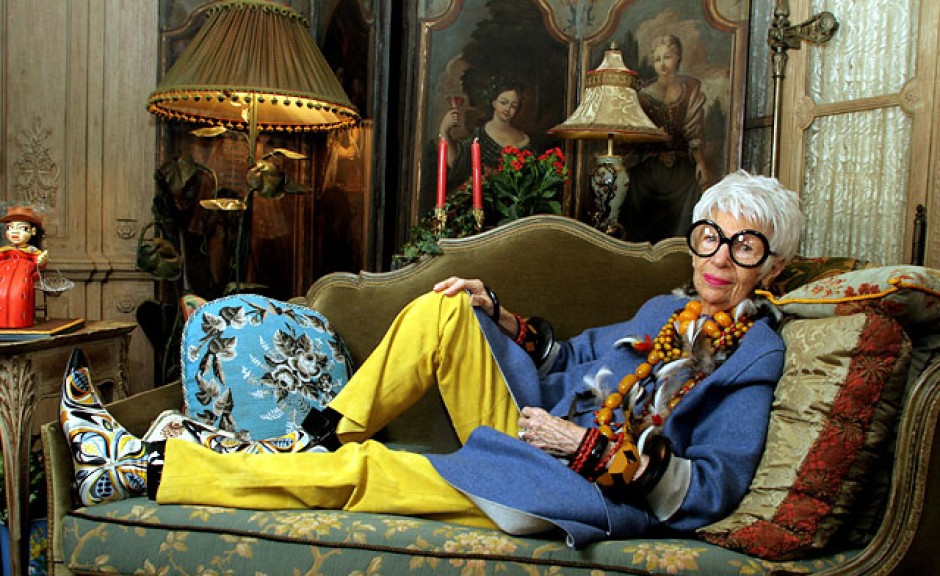At the ripe old age of 93, fashion icon Iris Apfel is still busy, active, engaged and alert. According to her housekeeper, she answers about 50 phone calls a day, far more than most people in their prime. As Apfel admits, she’d be depressed if the telephone stopped ringing.
There’s little danger of that. Despite her advanced years, Apfel — one of New York City’s most enduring characters and a social butterfly par excellence — remains in demand as a consultant, speaker and party guest.
In Iris, a documentary by the late Albert Maysles, Apfel spreads her wings like a peacock, showing off her outgoing personality, flamboyant clothes and dazzling accessories.

The film is scheduled to open in Toronto on May 15 and in other Canadian cities later this month,
Born in New York City, the daughter of eastern European Jewish immigrants, she studied art history at university and worked for Women’s Wear Daily before becoming a successful interior decorator. For inexplicable reasons, Maysles omits this important and relevant biographical data from his film.
Early on, Apfel decided to forego motherhood and focus on her career and travel. It’s a decision she does not regret. True to her credo, she travelled widely, her husband Carl in tow, to please a very demanding and discriminating clientele, which included several first ladies in the White House.
As the editor of a major American magazine observes in this crisp and amusing film, Apfel found herself at the intersection of fashion and design, a position she relished immensely and still does.
Apfel was very influenced by her mother, who taught her the importance of keeping a simple black dress in her closet at all times. Yet she was never really drawn to her mother’s simplicity of style. “I like big, bold and pizzaz,” says Apfel, whose oversize owlish glasses are probably her personal trademark.
In Maysles’ film, Apfel — an eccentric and somewhat endearing figure — is seen in a variety of situations and locales.
As the first scene unfolds, she selects her wardrobe for the day, choosing unconventional clothes, as well as beads and bangles. “I like individuality,” says Apfel, who hates the homogenized look.

An attendant takes her to a clothing shop in Harlem, and there she bargains for better prices. Apfel owns pricey condos on Park Avenue and in Palm Beach, Florida, but she’s an inveterate haggler. Old habits die hard.
Posing for a magazine cover, she smiles on cue like a real trooper. Attending a fashion show, she blends in seamlessly with the glitterai. In a subsequent sequence, a fashion curator at the Metropolitan Museum of Art pays tribute to her taste in clothes and accessories, which were displayed at an exhibit on sartorial glamour. In another scene, window dressers at Bergdorf Goodman, a major New York department store, plan an exhibit in her honor.
As the film winds down, Apfel meets admiring students from the University of Texas and celebrates her husband’s 100th birthday.
Judging by her joie de vivre and exhausting schedule, Apfel is hardly ready to slow down, much less retire.
